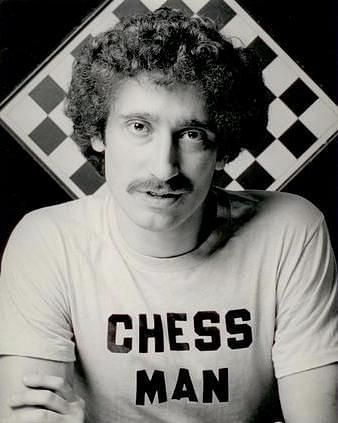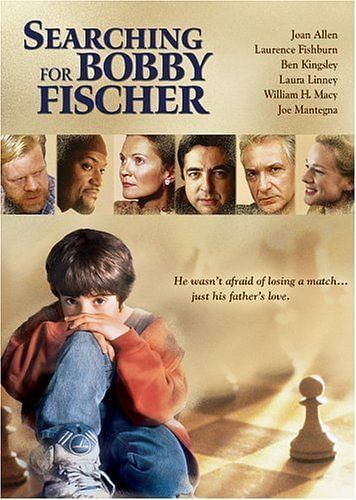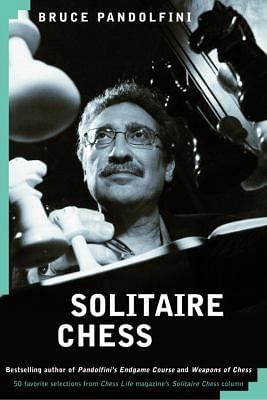
From the 64 squares to Hollywood: In conversation with chess coach Bruce Pandolfini

Bruce Pandolfini is one of the most experienced chess coaches in America, having trained the likes of Fabiano Caruana, Josh Waitzkin, and many other big names. He has given thousands of training sessions and has authored more than thirty books.
Moreover, he has also been one of the main subjects of the book and film "Searching for Bobby Fischer". More recently, he worked on the webseries "The Queen's Gambit" and came up with the name for the show. His vast career in the world of the 64 squares gives us a chance to buzz him with a ton of questions. So, here's to moving on to the Q/A.
1. How did you get into chess? What were the early days like?
My mother showed me the moves at age 9, but I didn’t get excited about chess until I was almost 14. I came upon the chess section in a public library. There were 32 books. I was permitted to take out no more than 6 books at a time. I took out 6, and then went back 5 more times to clean out the entire section. I stayed home for the next month and read chess books.
2. You were a solid player with a high rating, but you switched into training players. How and why did this happen?
It happened by chance. I was a television analyst for the Fischer-Spassky Match. Afterward, I had many requests for chess lessons. My schedule became quite full, and I suddenly found myself giving lessons all day long. After that, I never had any time to play. De facto, I had become a chess teacher and coach. What’s more, I’m glad it all worked out that way.
3. Tell us about some of your strategies for coaching chess players.
From the beginning of my teaching, I concentrated on the endgame. I also relied on asking lots of questions to help students think more logically. My emphasis was on analysis and guiding students to make relevant decisions. When analyzing, I never let students move the pieces. Everything had to be done in the mind. If the student touched a piece, it was considered automatically wrong, even if the move was correct. To become a perfect master, one must master self-control. I believed, and still do, this method helps to instill true mastery.
4. You have worked with some prodigies like Josh Waitzkin, Caruana, and others. What was your experience working with them?
I’ve been very fortunate, blessed with remarkable students. With all such wonderful talents, one quality always comes through. They all love chess. It is easy to teach when your students have a passion for learning.
5. You were one of the main subjects of the film "Searching for Bobby Fischer" and were played by the Oscar winning actor Ben Kingsley. Can you recount your experience about this film?
It was a fascinating experience - one I shall never forget. Mr. Kingsley was very friendly, and a true professional. He worked diligently to get things right. When I initially sat down with the director/screenwriter in his Hollywood office, I noticed a note from his secretary on his desk. It simply said: “Spielberg called.” I knew I was in another world.

6. How has your teaching chess evolved over the years? What have been some of the biggest moments and learnings from your career?
I didn’t know what I was doing at first. I never thought I was entering into a lifelong profession. It just happened over time. From the start, I stressed endgame fundamentals and principles. I was greatly influenced by famous teachers like Capablanca, Tarrasch and Lasker. As far as big moments go, there have been many. I’ve enjoyed every student’s success, and there have been many.
But there have also been abysmal lows. Each major defeat left me depressed. But then one day I had a realization. If I accepted blame for their defeats, should I accept credit for their victories? The answer is, of course not. I always try my best, but I don’t play the moves, good ones or bad ones. It’s as Ben Kingsley more or less says in Searching for Bobby Fischer: “In the end, they are who they are.”
7. Apart from being a trainer, you are also a prolific writer. Can you talk about your writing journey, sharing with us some tips?
I am not a natural writer. I’ve always had to work hard at my writing. Now, I had a great deal of help. My mother was an editor for Simon & Schuster, Random House, and such. She would show me how to edit pieces practically every day. One thing I learned from her is to just get it down.
That is, write what you’re trying to say, without getting fancy. You can refine it afterward. Writers are apt to obsess over each sentence, right from the start. Going about it that way, spending a good deal of time over every nuance, often gets nowhere. The other thing I picked up from her is to use simple language and short sentences.
Long sentences can be troublesome to read. One-syllable words tend to be more effective than multi-syllable words. But good writing also has creative variation. Sometimes, the unexpected is just what a piece might need. Finally, for my own writing, I always like to close (if I can) with a pithy line at the end that kind of summarizes the entire piece.
8. Recently, you were the chess consultant for the drama series "The Queen's Gambit" along with the former World Champion and number one player Garry Kasparov. Can you tell us about your role and experience working on this series?
My involvement with the project goes back 38 years. That is, I was the Random House consultant on the original novel. I first saw the manuscript in 1982. The final title, The Queen’s Gambit, comes from me. I was hired by Netflix in 2018 to be a script consultant for the series and to create all the chess positions. I was also responsible for training the actors.
Originally, I came up with 92 positions to correspond to critical script situations. Garry Kasparov provided cardinal advice on 6-8 of those key positions, devising ingeniously brilliant variations and novelties.
Moreover, he provided the director with an insider’s view of chess in Russia. But there were also two very gifted chess experts from Germany who helped immeasurably. Iepe Rubingh (who sadly passed away this past year) and John Paul Atkinson. They were both incredible.
The final game was developed by Kasparov. But because of cinematic necessity, I had to change the ending with minutes to go before filming, and those changes are what the viewer sees on screen. Of course, we had to get the chess as correct as possible. But the series is fiction. It’s drama. So, the most important thing was to make sure the chess enhanced the storyline and did not impair the narrative’s flow. More than anything, we wanted the actors to look like real chess players, and I think they do. Anya-Taylor Joy is brilliant. Director/screenwriter Scott Frank is masterful. I think they, along with the entire cast and crew, did a fantastic job.
9. What can you say about the current online chess model? How have you been adapting to the virtual world?
There are obvious drawbacks to online chess and competition, but there are positives as well. During these difficult days, it has granted aficionados chances to play regularly and stray sharp. It seems that untold new players are being drawn to the game every week. The software is getting better and better.
I can only imagine what Bobby Fischer would have done if he had had access to all these programs and possibilities. For me, I still give lessons online. There are advantages, indeed, because you can look at material more quickly and see more examples over a given time frame. But I do feel something is lost at the same time, at least on the human level. Nevertheless, the future of chess remains quite bright.
10. What advice could you give to the readers?
The best way to improve at chess is to play and be challenged regularly. While playing, I believe you should give it your all. Too many of us take training lightly, playing practice games too casually. Students should practice and train for real, always giving their very best. I will leave the readers this final piece of advice. Play as if the future of humanity depends on your efforts. In fact, it does.
